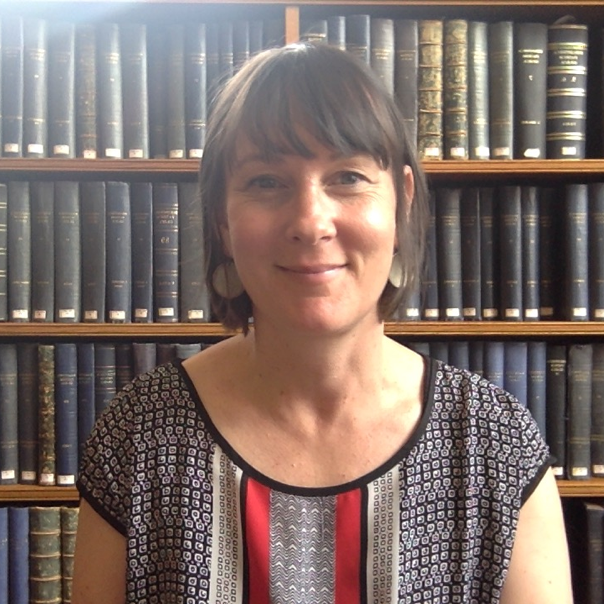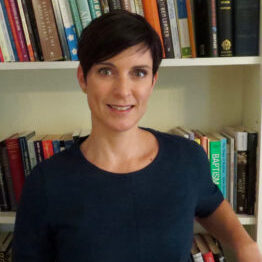Episode Transcript
[00:00:05] Speaker A: You're listening to by the well, a lectionary based podcast, preachers recorded on the land of the Wurundjeri. People.
[00:00:18] Speaker B: Welcome to by the well. I'm Sean Winter.
[00:00:20] Speaker A: And I'm Kylie Kreb.
[00:00:21] Speaker B: And today we're going to be looking at readings for the third Sunday of Pentecostal. First of all, we're going to look at one Samuel, chapter eight. The lectionary gives us kind of snippets of verses here and there, but effectively we're looking at a story that runs from about verse four through to verse 20. We're then going to turn and look at one of Paul's letters, two corinthians, 413 to five, verse one. And then we're going to look at a passage from Mark's gospel, chapter three, verses 20 to 35. Kylie, great to be with you. So let's set the scene for one Samuel, chapter eight. What are we, where are we in the story of Israel? And what is the main kind of event that's taking place in the text here?
[00:01:02] Speaker C: Yeah, yeah.
[00:01:02] Speaker A: This is an important transition.
We've had the leadership of the judges, and here we have elders who come together and say, you know, Samuel, your time's over. Of course, part of the context here is that Samuel's sons, who he's handed over some of the leadership to, are up to no good. And so everybody's distrustful of them. And they say, we want to be like all the other nations, give us kings.
Which then, you know, Samuel goes into this detail about all the things that will happen if you get a king, which is bad news, man.
[00:01:38] Speaker B: That sense of being in kind of institutional change and regime change, it's worked one way up until now. Now we know that the way it has been working isn't going to work anymore. So we need something radically different. It's quite palpable in this text, I think.
[00:01:52] Speaker A: Yes, exactly, exactly. It feels very human, feels very contemporary in its own way.
[00:01:58] Speaker B: In the year of elections, this is a good text to be read.
[00:02:01] Speaker A: Yes, that's right. Exactly. There's a lot of elections just being announced this week. Right. So we've got all of this going on internationally and I guess a part of the other thing. So one thing it's worth noting is that in the beautiful way that often our biblical texts are not monovocal, they're not going to have one thing to say. We get other passages that are that approach kings a bit differently, that say it is the will of God that there be kings, whereas in this passage, what we're going to hear is that it's the. It's the people who are saying, we want a king, give us a king. We want to be just like everybody else. And it kind of comes almost out of spite or something that there's a kind of, well, you ask for it, you can live with it. This is what it's going to be like.
[00:02:45] Speaker B: So let's just pause there because that's a really important thing and let's be clear about it. So, I mean, if you read the Hebrew Bible all the way through.
[00:02:53] Speaker A: Yes.
[00:02:54] Speaker B: And asked, is this a text that is in favor of the monarchy?
[00:02:58] Speaker A: Yes.
[00:02:59] Speaker B: On the whole, the answer would be yes. Right. Even though there are bad kings and the institution of the monarchy seems to be a divinely ordained thing that is there for the well being and the good of the people, the monarchy is somehow representative of God's presence. It's connected to the cult and the temple. David becomes this figure above all figures that then comes to represent israelite hopes and expectations for its ongoing salvation and deliverance. Messianic expectation. So you would think that the Hebrew Bible is a kind of king affirming text.
[00:03:36] Speaker C: Yes.
[00:03:37] Speaker A: Yes.
[00:03:37] Speaker B: But then you've got this kind of counter testimony in here.
[00:03:40] Speaker C: Yes.
[00:03:41] Speaker B: And what's at stake?
Why in this text, does it seem to be a problem or does monarchy seem to be a problem?
[00:03:48] Speaker C: Yeah. Yeah.
[00:03:48] Speaker A: Well, I mean, one of the things that's interesting, I mean, it's a beautiful thing that our lectionary gives us this, before we have all of these narratives, we're going to go into, through ordinary time, about how wonderful King David is.
[00:03:57] Speaker C: Right.
[00:03:59] Speaker A: So it's already showing a kind of fracture. But this is also because the story, as it goes on is going to have a fracture when, by the time we get to Solomon, there is going to be a problem with kings. So it's reminding us that, I guess, that our stories are not entirely linear, that they're, you know, this is. This is a history that is written down by different groups of people who are telling different parts of the narrative here and who are, as you say, using counter testimony. They're wanting to draw attention to the problems here.
[00:04:28] Speaker B: One of the things I noticed is that as Samuel is explaining why this is a really bad idea in verse eight, he kind of speaks God's voice, and then he reminds people that, you know, all the way from the past, even from the time I brought you up out of the land of Egypt, you've been forsaking me and serving other gods. And this theme of idolatry is kind of woven then, in. It's very, if we locate this within what we call the deuteronomistic perspective, maybe not history, but a perspective, it's a very dominant theme. Right. Idolatry is the thing which at the heart of the society will undo Israel's covenant relationship with God. And those judges, Samuel's sons, go after other gods. And the whole history of the monarchy is about whether or not kings go after other gods or not. Right? Good kings and bad kings, etcetera. So it seems to me you've got this idea that actually what's at stake is not so much the form of governance. Do you have judges? Do you have kings?
It's the question of what's the focus of governance? And is it a form of governance that enables the people to retain their covenant relationship with Israel's God through being faithful in and of itself?
[00:05:44] Speaker C: Yes. Yeah.
[00:05:45] Speaker A: And if you've got a system where local kings and stuff are really closely associated with the cult and different gods, this is exactly what is going on. And this is a way of introducing an intermediary. When you actually have. You have a direct line to the covenant God, why do you need a king? You know, like, so this is part of what's going on here. And I guess the other important bit of the context is that they're in.
They're in a kind of military vulnerability. So part of the broader context is that they're worried about the threat posed by the Philistines. And so this seems like a sure option. This is what all the other nations are doing to shore themselves up against military threat. And this seems to me to just be, I mean, it's so completely contemporary, right? Like, what kind of bad political decisions get made because people feel vulnerable and all of those things. How do political leaders play on our sense of vulnerability in these kind of ways in order to put in place forms of governance, forms of leadership that are actually not in the people's interest.
[00:06:53] Speaker B: So the idea would be that in that situation of stress and anxiety about what the future is going to hold or how we relate to our enemies that surround us or whatever else, there is always this temptation to change the structure, to form different patterns of governance.
But those systems, those structures are never the solutions in and of themselves. The question is, what do they point you to? What are they representing?
And I think here we have at least an awareness that the author of one, Samuel, and those who kind of transmitted the Hebrew Bible knew that monarchy in and of itself was not a solution to anything.
Governance change was not a solution to anything. All it can do is provide you with the possibility that you might actually reorient your faith and your life and your community towards God and God's purposes for the world.
[00:07:49] Speaker A: Well, certainly there's going to be the testimony to which this is the counter testimony that says there are good kings coming right up. But keep reading and you'll find out that kingship can go downhill as well.
[00:08:00] Speaker B: So, preachers, in this year of big elections around the world, why not take on one Samuel, chapter eight?
[00:08:13] Speaker A: Wonderful. So now we're into second corinthians.
A wonderful letter. I'm sure that Shaun is going to agree with me on this, if a little complicated.
Just as we kind of approach this, this section of this complicated letter, what are the things, John, you reckon we should be looking out for?
[00:08:35] Speaker B: It is a complicated letter to Corinthians for a number of reasons, and there's lots of debate about why it's quite as tortuous as it can be. This passage is actually among the more complicated passages in the most complicated letter that Paul wrote. And, of course, some people think that actually it's a compilation of several letters that have been stitched together at a later date.
I mean, the basic thing to know about this section of two corinthians is that Paul is right in the middle of what's often called a kind of an apology or a defense of his own apostleship.
There's debate about the reasons why Paul feels the need to talk quite so much and to defend his own identity, his own practice as an apostle, the values that inform him in his apostolic ministry, why he needs to defend those so strongly. But he's certainly doing it, and he's doing it in a particularly kind of pointed way that has a very, very strong focus on the notion of suffering and what he'll later call weakness.
And the lack of conformity of Paul as an apostle, a form that doesn't conform to expected models of what authority figures should look like. So whatever's going on in the wider culture, greco roman understandings of power or eloquence or wisdom or sophistication, Paul as an apostle doesn't inhabit or represent those values. He represents something else. And, I mean, the key that unfolds, I think the trigger that unfolds this extensive meditation effectively around the question of what happens to bodies and apostolic bodies is Paul's initial statement. A bit earlier in chapter four, his list of a hardship list of all the things that apostles kind of go through, all the things that they suffer with and struggle.
So that's where we are. And I think there are two things that I want to say immediately. I'd be interested to hear what you thought about them. The first is, I mean, it's always tempting, of course, when we read stuff that's about apostles, to think that what's being described is some kind of superclass of christian disciples or some kind of set apart form of leadership.
But I think, and I try and argue this in all sorts of different ways. When I teach two corinthians, Paul only spends time talking about himself and fellow apostles and what their lives are like and what values drive them in order to allow the Corinthians to understand that that's what their life also ought to be about.
So these are not just apostolic ideas, they're ecclesial ideas.
So this is why we get the language of. Paul uses the first person plural. We have the same spirit of faith. We also believe, and so we speak. We might think that's what apostles do, but actually it's also a way of saying this is what the church is responsible for.
So I think we should. If you're preaching about this, you shouldn't be talking about Paul, other than to use Paul and the apostles as a way of talking about the vocation and identity of the church.
[00:11:45] Speaker C: Yeah.
[00:11:47] Speaker B: Where Paul gets to this is the second thing is we get into a bunch of stuff about kind of future eschatology and what's going to happen in the future, and we get this, what we sometimes call an anthropological dualism. So an understanding of the human person divided into two.
The NRSV translates verse 16, outer nature and our inner nature. But natural fact. The Greek says out the. The outer man and the inner man, or the outer person and the inner person. So it's two ways of thinking about what a human person is. There's an outer external dimension and then there's an internal dimension to it. So Paul is immersed in those kinds of ideas, and people try and kind of work out where they came from.
[00:12:33] Speaker A: Yeah, yeah. So on that then, like, you know, very sort of low tech kind of question. But, you know, we're going to get to the bit then that at the start of chapter five about the tent that is our earthly home being destroyed, but having a building from God. So it would be pretty tempting to read into this kind of much later, sort of, you know, neoplatonic kind of ideas as they are received later in christian thought. And to see this as a division between the body and the soul or something like this, is that I mean, is that what Paul's got in mind here?
[00:13:07] Speaker B: So the question of Paul's relationship with platonism is a kind of vex question. Paul, I think probably everywhere in what we call the hellenistic world, these ideas are around and Paul is quite capable of drawing on them and using them. But I think the really crucial thing is that a strict form of that dualism between the tent that gets destroyed and what then is eternal is in the strict form. Very often the external is denigrated, is regarded as worthless, of no particular significance. And the only thing that life really should aspire to is to get past a stage where you're encumbered by all this stuff.
[00:13:46] Speaker A: You just, like, transcend your physical form.
[00:13:49] Speaker B: And there are christian versions of that.
[00:13:50] Speaker C: Yeah.
[00:13:51] Speaker B: Those ideas. Right. From the gnostics onwards.
[00:13:53] Speaker C: Yep.
[00:13:56] Speaker B: What makes it very clear that Paul doesn't think that's what's happening is that a bit earlier in chapter four, he has talked about the body, so literally, the body as the place that makes visible the death and resurrection of Christ. So he talks about carrying around the dying of Jesus in our mortal bodies so that the life of Jesus may be seen in you. So these mortal bodies are not to be thrown away.
[00:14:19] Speaker C: Yeah, yeah.
[00:14:21] Speaker B: But to understand what they're about and what they're capable of, you need to pay attention to what's beyond them. So we have a tent. The tent is frail, it's fragile, it's weak. It will be destroyed ultimately.
[00:14:34] Speaker C: Yeah.
[00:14:35] Speaker B: But our perspective on its meaning and its significance comes when we anticipate the idea that actually there is a God has a building made with. Into which we will ultimately be incorporated.
[00:14:46] Speaker C: Yeah, yeah.
[00:14:46] Speaker A: And that building without hands, of course, is language that's used all the time against idolatry. Or again, you know, this is.
[00:14:52] Speaker B: Yeah, it's temple language.
[00:14:54] Speaker A: Temple language.
[00:14:55] Speaker B: Incorporation into God's very life and God's love.
[00:14:57] Speaker C: Absolutely, yeah.
[00:14:58] Speaker A: Beautiful. So, and then in the section before then, like, just thinking about. I mean, we're, you know, we're preaching on these texts, we're wondering about what they mean for us as communities, as communities of believers. And we've got this just strong statement. I feel like you could just preach on this. The start of verse 16. So we do not lose heart. Like, what. How do we. I don't know, how do. How do we imagine this complicated letter, this complicated stuff? There's all these kind of metaphysical questions about the nature of humans and their bodies and all. You get caught up in all of that, but how does this give us hope?
[00:15:34] Speaker B: So here's the way I'd think about it. The metaphysics will change, right? Philosophies change, the way we understand the human person changes.
But effectively, what Paul is saying here is the way in which you can endure and make your way through the vagaries, the frailties, the fragility of this life, including the reality that this life is always lived under the shadow of the reality of death.
The way that you do that is to recognize that it's never just about this life. That's always set in a broader story, in a broader picture, which has everything to do with God and God's loving purposes.
So if that's the case, that's the resource you draw on. But when this life becomes apparently unbearable, you can not lose heart.
[00:16:23] Speaker C: Yeah, yeah.
[00:16:24] Speaker B: So I'm less interested in the metaphysics. I'm much more interested in the question of how christian faith, christian affirmation of a future beyond death with God, which is really talk about resurrection, how that resources life in the here and now. And this is all about the here and now. We do not lose heart. Our inner nature is being renewed day after day, our daily quotidian existence.
We look at what we cannot see, a bizarre phrase at one level, but, you know, we pay attention to this broader thing that we cannot fully perceive, because actually that helps us to understand what we do and how we live and what we decide is important.
[00:17:04] Speaker A: But I love, though, how you're saying that the here and now is actually still the focus. This is not a kind of like, you know, there are other texts that we encounter outside the Bible that are about like, just sort of denying the present and, you know, living as though, you know, everything has already been transcended. This is not doing that. And it makes me think of earlier sections of the letter that, you know, about.
We're talking about clay jars and stuff. You know, that there is actually something important about the fragility, or recognizing the fragility. And even in that the divine light shines through.
[00:17:38] Speaker B: One of the things that we think might be the case in two corinthians is this theology isn't out of Paul's head. It's actually out of Paul's lived experience.
[00:17:45] Speaker A: Yes. Beautiful.
[00:17:46] Speaker B: In two corinthians one, he begins by talking about this thing that happened to him in Asia. He despaired of life itself, but what he came to realize is that in the deliverance that he received, he actually came to see and to understand the God who raises life from death, brings life to the dead.
And so it's a provocation that Paul seems to have kind of drawn into himself towards what it actually means to affirm resurrection faith, I think.
[00:18:19] Speaker A: Yes. Beautiful.
[00:18:20] Speaker B: All right, let's move on to the gospel.
[00:18:26] Speaker D: If you'd like to know more about by the well or any of our hosts, please visit bythewell.com dot au dot.
[00:18:39] Speaker B: So, Kylie, Jesus, the devil and families.
[00:18:44] Speaker A: A nice meaty little passage here from Mark. I mean, is there a passage in Mark that doesn't have some of those things in it all wrapped up?
[00:18:51] Speaker B: Probably not.
I mean, we're in the opening chapters of Mark, so we're still doing quite a lot of kind of scene setting and ground clearing for what the ministry of Jesus is all about. But there's a particular kind of focus in this passage. What do you think are the main themes that are being explored?
[00:19:08] Speaker A: Yeah, well, I mean, I think you've given a pretty good summary there.
We've been setting up Jesus identity. We've had, you know, these conflict narratives that were part of the conflict cycle that we've had last week, week in worship as a lectionary. And we're moving now into, you know, we've had the, you know, the call of these disciples and all the things going on here, and now we've got his family freaking out about what's going on here.
I think one of the. I mean, I think there are lots of things that you can do, and we will get. I think we'll get to the bit about the strongman and plundering the house because this is going to be a key part of the sort of apocalyptic vision of Mark's gospel.
But I do notice, I feel like people who listen to podcasts that I've done on passages in Mark might think I always bring this up, but there is something very frequently in markan passages that are about how nuclear family is not where it's all at, and in fact, in some cases, a barrier to the proclamation of the gospel. And so there is a kind of challenge in here. You know, we've got Jesus immediate family coming and being worried about what's going on.
And then, you know, he, after the central section there about the casting out Satan and whatnot, we're going to have this section about who are his, where Jesus says, who are my mother and brothers?
[00:20:36] Speaker B: You know, it's actually one of those markan sandwiches, isn't it? We start off with the family, and then the scribes turn up in verse 22. So we kind of veer off into another conflict, and then we come back to the family conflict. So that's really interesting. So the family conflict and the religious conflict are kind of set in relationship with each other, so that to understand one is to understand the other, or you're to read.
[00:21:00] Speaker A: Yeah, one frames the other or something.
[00:21:03] Speaker B: And usually what we say when we read those constructions in Mark is that if you understand what's going in the middle, that gives you a lens onto what's going on on the outside. So.
[00:21:11] Speaker A: So tell us on what's going on in the middle, then. Well, what's good in five words or.
[00:21:17] Speaker B: In five words or less? It's a parable, Kylie. And I find that really interesting, that actually this conversation or this kind of statement teaching that Jesus has about a kingdom divided about the stronghold of Satan, Satan's house, is expressed as a parable. So what does that mean? Well, it means that what we're being given is what the parables give us. We're being given a kind of window of perception onto the truth of realities that you might not otherwise see on the surface.
So it unlocks perception as to or a secret about what's true.
So on the surface, what you've got is a family in conflict.
[00:21:59] Speaker C: Yes.
[00:22:00] Speaker B: What this unlocks is the idea that actually, that conflict is not simply about people not understanding each other or getting on or Jesus coming of age, but it reflects, actually a fundamental conflict that's at work in the world and that comes to a particular head in this gospel, in the conflict between Jesus and religious leaders. And that's the conflict between good and evil, God and Satan, framed in this kind of apocalyptic dualism.
Those aren't initially Jesus terms. They're actually the terms of his opponents. Because they come and accuse him.
[00:22:34] Speaker A: Yes.
[00:22:35] Speaker B: So they come and say, it's by Beelzebul that you're driving out these demons. But Jesus picks up that apocalyptic worldview language and reverses it and turns it on his head to say, well, if that's the case, then it can't possibly be that I'm doing what I'm doing, because actually what's happening here is that I'm driving out Satan. So Satan's not going to do that.
[00:22:58] Speaker C: Yeah.
[00:22:58] Speaker B: Is he?
[00:22:59] Speaker A: He's not going to work against your own house.
[00:23:00] Speaker B: He's not going to work against your own household. What we see here is that we've got someone who's entering the strongman's house.
[00:23:07] Speaker A: The strongman, meaning Satan here.
[00:23:10] Speaker B: Yeah, yeah.
[00:23:11] Speaker A: I think the kingdom of.
[00:23:13] Speaker B: In a parabolic sense.
[00:23:15] Speaker C: Yeah, yeah.
[00:23:16] Speaker B: And. And, yeah, we want a better word. Tying them up.
[00:23:19] Speaker C: Yeah.
[00:23:19] Speaker B: Disabling. Disarming them of their power.
Readers hearers will know probably that that phrase, binding the Strongman is the title of a very famous commentary on Mark's Gospel by Ched Myers, which explores particularly how this apocalyptic language, first century language, very clearly located in a particular worldview, how actually it opens up all sorts of social and political perspectives that are universal and operate across worldviews and cultures and contexts.
[00:23:51] Speaker C: Yeah.
[00:23:51] Speaker A: So, and this is going to be, I mean, you know, as you say, we're still in the opening chapters of Mark. Jesus identity is being set up, all of this, and his mission is being set up and that, you know, the whole way through, but especially to the transfiguration kind of narrative, we have all these things that are about setting up that Jesus is winning people for the kingdom of God over the kingdom of Satan. So this is a really important passage to draw that out. It's interesting to me thinking about the household not able to stand against itself. And then we have, as you say, the framing story about which could be understood as being about households, you know, families. And so it raises the question about who is the true household that is being formed in this gospel community.
That won't be, because, of course, Jesus has already said it would be preposterous to be working against yourself within your household. It wouldn't stand. So he's actually here forming a new community.
[00:24:46] Speaker B: So I think this is a really important theme in Mark, and it's very unstable in the way that it gets articulated.
So if you had asked a first century jew where is a representation or a model or a manifestation of, you know, the rightly ordered household of God, they might have appointed, they might appoint it to the temple and to the priesthood. Well, the religious establishment are actually on the other side of the equation. Or you might point to the basic structure of society, which is the family, probably not nuclear, but some kind of family structures.
Okay, they're also on the wrong side.
Jesus then calls a group of disciples. So you might think that the twelve, they're this new kind of community, this new household, who live by these different values. But what happens as this gospel unfolds? Well, chapter eight ends up with Jesus saying to Peter, get behind me, Satan. So they're on the right. So this idea that, you know, there are two sides, and you need to be on the right side of this. But there's always the risk that those who believe themselves to be most clearly on the side of, you know, the one who is binding the strong man are actually on the strong man's side. That's a really significant theme in Mark. It's highly disruptive and is part of the reason why Mark's opening chapters are so focused around this idea of, do you really understand who this is? Do you really understand and know who Jesus is, this secrecy theme that's going on?
[00:26:15] Speaker C: Yeah, yeah.
[00:26:15] Speaker A: And that, you know, that this redefinition is whoever does the will of God is my sibling mother, you know.
So one of the other things I just wanted to say quickly about the passage is that it's also interesting, the particular accusation, or the concern is how it is in Mark that's made about Jesus is that his family are saying he's out of his mind.
And this is a kind of accusation that comes up a bit about Jesus.
We might observe that it's also something that happens in acts against Paul.
And there's a disability scholar, Anna Rebecca Soloveg, who has written a great book called Negotiating the Disabled Body, where in one of her chapters she explores this idea of an accusation that someone's out of their mind and what this looks like. Now, of course, in this passage, it's kind of refuted. So it's not the case that Jesus is considered out of his mind, but it still would be an interesting thing, I think, to explore, to think what is going on in making this accusation, how we think then about not to entirely equate contemporary mental illness with this, but what it means to be at odds with expectations and the accusations that can then be made about people's mental health as part of that, that he's actually imagining a different way of living in community. And this is what comes of it.
[00:27:38] Speaker B: So two things about that. The first is that actually revolves around a linguistic trick that Mark plays. So in verse 21, where the NRSV translates, he has gone out of his mind. I mean, the verb that's used there, existemi, literally means he's standing outside of himself.
And then when you get to the end of the passage and the crowd is gathering, then we get your mother and your brothers and your sisters are outside.
So the point is that you might look at the one who is out of their mind and think they're the one that's disordered. But actually it's the family structure that is making that accusation. That's where the disorder lies.
[00:28:24] Speaker A: Beautiful.
[00:28:25] Speaker B: So it kind of plays on that. Absolutely, yeah. The second thing is to say, I mean, I've been doing quite a lot of thinking recently about the psychology of Jesus and about how we can explain some of the kind of questions about Jesus self awareness and who he thought himself to be.
I think there's some strong likelihood that, I mean, there weren't categories of mental illness in the ancient world, but there were categories of madness, delusion.
And we know that this accusation that occurs here in the public ministry of Jesus reoccurs in the trial narratives when people accuse Jesus. And there's a very excellent article by Justin Megat, a Cambridge scholar, about the madness. He calls it the madness of King Jesus, which is just about how these perceptions of cognitive instability, what we would call mental illness, are actually here in this narrative and play out in a way that really force us to ask questions about whether our perceptions of those categories are actually the right perceptions or whether God is up to something very, very different in the way that we should think about them.
[00:29:34] Speaker A: Yeah, fantastic. And thinking about this as a kind of a thing that is said about people when they come into conflict with other expectations.
Yeah, it's an interesting thing to wonder about as we think about what these texts might mean for us. How would you be preaching on this, Sean?
[00:29:53] Speaker B: I think I'd probably be preaching on. I'd probably pick up the kind of family divided against itself, household divided against itself. And I think focused on the idea that anytime you think that you've established a kind of secure, permanent structure that's going to be for the good of everyone, you need to open yourself up to the possibility that actually you've created something that's on the wrong side of the apocalyptic worldview.
[00:30:18] Speaker C: Beautiful.
[00:30:19] Speaker B: Anyway, here we go. All right, Charlie, thanks ever so much for the conversation.
[00:30:23] Speaker A: Thanks you.
[00:30:27] Speaker D: By the well is brought to you by Pilgrim Theological College and the Uniting church in Australia. It's produced by Adrian Jackson. Thanks for listening.





